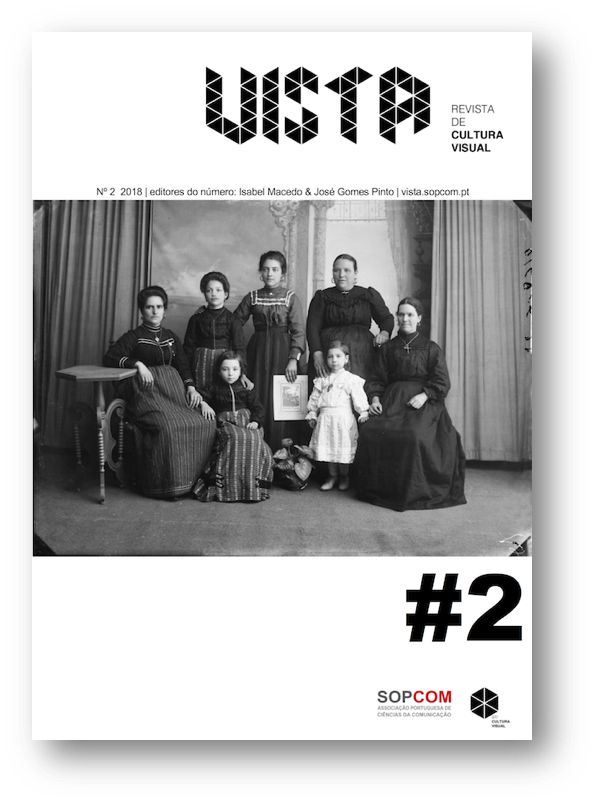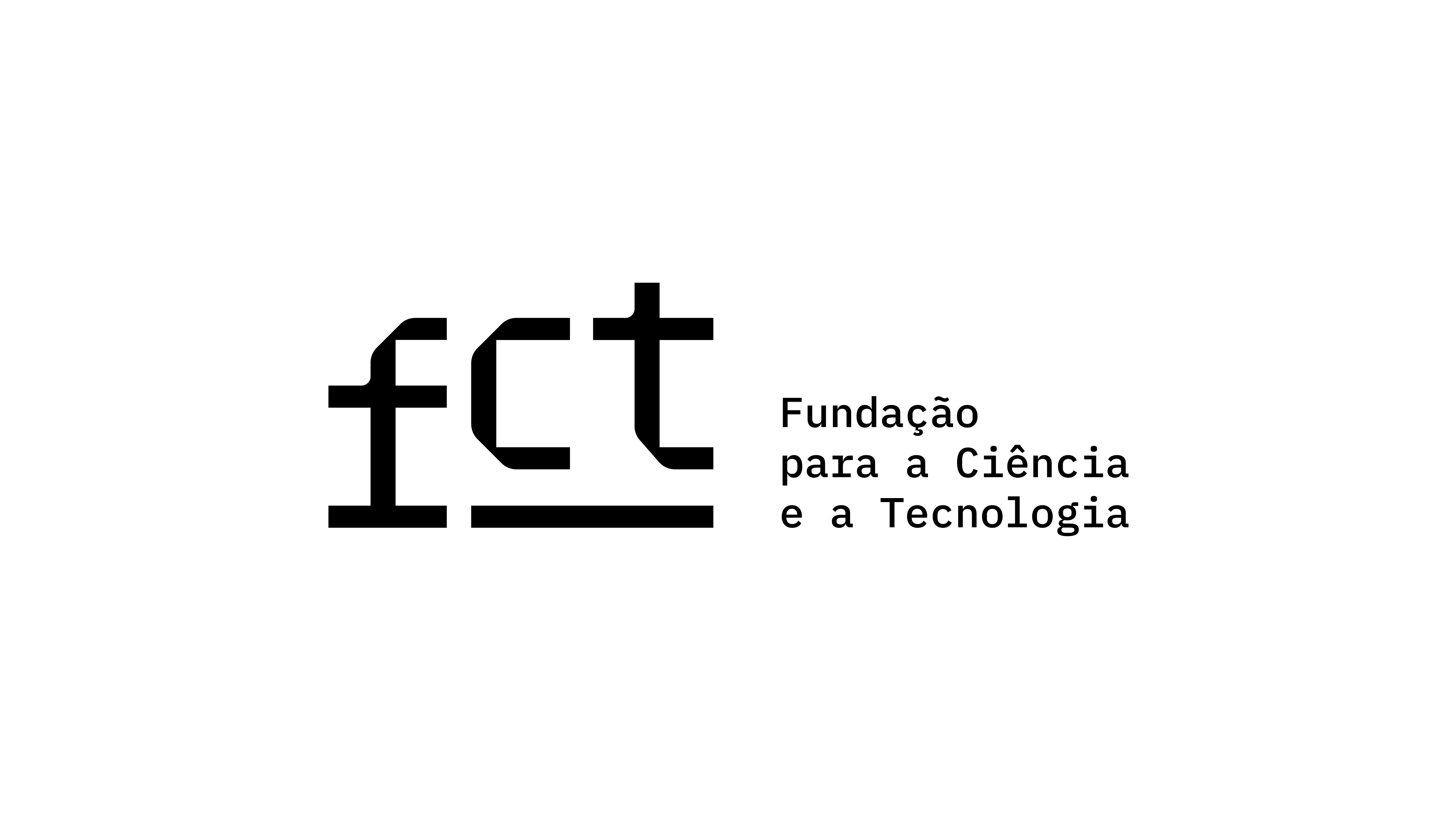“Uma História que se pode tocar”: apropriações artísticas da Guerra Colonial a partir de Sandro Ferreira
DOI:
https://doi.org/10.21814/vista.3000Keywords:
war, memory, archiveAbstract
This paper intends to look into a set of contemporary artistic practices which focus on the Portuguese Colonial War, taking as a case study the work of the artist Sandro Ferreira (1975). Ferreira belongs to the second generation of the Portuguese Colonial War, the one that has not experienced it directly and which Marianne Hirsch (2012) refers to as “the generation of postmemory”. In the urgency to remember this episode of our collective History and in order to understand a story that often coexists, silent, in our homes, Sandro Ferreira appropriates, in his creative practice, private archives such as letters, photographs or war memorabilia. Therefore, this paper, through the creative practice of Ferreira, intends to inquire into how the visual arts can become tools against silence or oblivion.
Downloads
References
Almeida, J. (2014). Apropriação do Arquivo Privado do Período da Guerra Colonial na Prática Artística Contemporânea Portuguesa. Dissertação de Mestrado, Faculdade de Ciências Sociais e Humanas da Universidade Nova de Lisboa, Lisboa, Portugal.
Almeida, S. V. de. (2012). Que nação é esta? Tramas identitárias nas artes visuais portuguesas. Visualidades, 10(1), 39–61.
Antunes, M. J. L. (2015). Regressos Quase Perfeitos. Memórias da Guerra em Angola. Lisboa: Tinta da China.
Antunes, M. J. L. (2017). O que se vê e o que não pode ser visto: fotografia, violência e Guerra Colonial. In E. Peralta, B. Góis, & J. Oliveira (Eds.), Retornar. Traços de Memória do Fim do Império (pp. 213–224). Lisboa: Edições 70.
Clifford, J. (1988). On Collecting Art and Culture. In The Predicament of Culture: Twentieth-Century Ethnography, Literature and Art. Cambridge: Harvard University Press.
Cruzeiro, M. M. (2004). As mulheres e a Guerra Colonial: Um silêncio demasiado ruidoso. Revista Crítica de Ciências Sociais, 31–41.
Dias, J. A. B. F. (2001). Arte e Antropologia no século XX: modos de relação. Etnográfica, V, 103–129.
Enwezor, O. (2008). Archive Fever: Uses of Document in Contemporary Art. Nova Iorque, Gottingen: Steidl.
Ferreira, J. M. (1993). Portugal em Transe (1974-1985). In José Mattoso (Dir.), História de Portugal. Lisboa: Círculo de Leitores.
Foster, H. (2004). An Archival Impulse. October, (110), 3–22.
Foster, H. (2006). O Artista Como Etnógrafo. In M. R. Sanches (Ed.), Portugal não é um País Pequeno - contar o «Império na Pós-Colonialidade» (pp. 171–204). Lisboa: Cotovia.
Freud, S. (1989). O Sentimento de Algo Ameaçadoramente Estranho. Em Textos Essenciais sobre Literatura, Arte e Psicanálise (pp. 209–242). Mem-Martins: Publicações Europa América.
Gil, J. (2005). Portugal Hoje – O Medo de Existir. Lisboa: Relógio D’Água.
González, J. L. M. & Torres, E. M. Á. (2012). El Objeto Como Testimonio: Cuando el artista se convierte en antropólogo. Antropología Experimental, 0(12). Retirado de http://revistaselectronicas.ujaen.es/index.php/rae/article/view/1912
Guerra, J. P. (1994). Memória das Guerras Coloniais. Porto: Edições Afrontamento.
Handler, R. (1988). Nationalism and the Politics of Culture in Quebec. Madison: The Wisconsin University Press.
Hirsch, M. (1997). Family Frames: Photography, Narrative and Postmemory. Cambridge: Cambridge University Press.
Hirsch, M. (2008). The Generation of Postmemory. Poetics Today, 29(1), 103–128. https://doi.org/10.1215/03335372-2007-019
Hirsch, M. (2012a). An Interview With Marianne Hirsch. Retirado de https://cup.columbia.edu/author-interviews/hirsch-generation-postmemory
Hirsch, M. (2012b). The Generation of Postmemory. Writing and Visual Culture after the Holocaust. Cambridge: Cambridge University Press.
Wertsch, J. & Billingsley, D. (2011). The Role of Narratives in Commemoration: Remembering as Mediated Action. In H. Anheier & Y. R. Isar (Eds.), Heritage, Memory & Identity (pp. 25–38). Londres: Sage.
Kirshenblatt-Gimblett, B. (1998). Destination Culture, Tourism, Museums and Heritage. Berkeley: University of California Press.
LaCapra, D. (2004). History in Transit. Experience, Identity, Critical Theory. Nova Iorque: Cornel University Press.
Lowenthal, D. (1985). The Past is a Foreign Country. Cambridge: Cambridge University Press.
Madeira, C. (2016a). A arte contra o silêncio. Relações entre arte e guerra colonial. Revista Colóquio/Letras, (Ensaio, 191), 95–108.
Madeira, C. (2016b). Arte da Performance e Guerra Colonial Portuguesa. Media & Jornalismo, [S.l.], 16(29), 15–25.
Oliveira, A. B. de. (2016a). De mercados de rua, álbuns de guerra e filmes de família à prática artística contemporânea: descolonizando o presente através do arquivo colonial. In S. Sampaio, F. Reis, & G. Mota (Eds.), Atas do V Encontro Anual da AIM (pp. 180– 193). Lisboa: AIM.
Oliveira, A. B. de. (2016b). Descolonização em, de e através das Imagens de Arquivo «em Movimento» da Prática Artística. Comunicação e Sociedade, 29, 107–129.
Oliveira, A. B. de. (2017). Avó e O Jogo, ou o Arquivo Colonial «em Movimento» nos Vídeos de Raquel Schefer. Revista África(s), 4(7), 19–27.
Peralta, E. (2013). A composição de um complexo de memória: o caso de Belém. Em N. Domingos & E. Peralta (Eds.), Cidade e império: dinâmicas coloniais e reconfigurações pós-coloniais (pp. 361–407). Lisboa: Edições 70.
Peralta, E., & Oliveira, J. G. (2016). Pós-memória como herança: fotografia e testemunho do «retorno» de África. Configurações. Revista de Sociologia, (17), 181– 197.
Ribeiro, M. C., & Ribeiro, A. S. (2013). Os netos que Salazar não teve: Guerra Colonial e memória de segunda geração. Abril - Revista do Núcleo de Estudos de Literatura Portuguesa e Africana da UFF, 5(11), 25–36.
Ribeiro, M. C., & Vecchi, R. (Org.). (2011). Antologia da Memória Poética da Guerra Colonial. Porto: Edições Afrontamento.
Schneider, A. (1993). The Art Diviners, Anthropology Today, 9(2), 3-9.
Schneider, A. & Wright, C. (2006). Contemporary Art and Anthropology. New York: Berg.
Schneider, A., & Wright, C. (2010). Between Art and Anthropology - Contemporary Ethnographic Practice. Nova Iorque: Berg.
Simine, S. A. (2013). Mediating Memory in the Museum - Trauma, Empathy, Nostalgia. Hampshire e Nova Iorque: Palgrave Macmillan.
Smith, L. (2006). Uses of Heritage. Nova Iorque e Londres: Routledge.
Spieker, S. (2008). The Big Archive: Art From Bureaucracy. Massachusetts: MIT Press.
Vecchi, R. (2010). Excepção Atlântica. Pensar a Literatura da Guerra Colonial. Porto: Edições Afrontamento.
Downloads
Published
How to Cite
Issue
Section
License

This work is licensed under a Creative Commons Attribution 4.0 International License.
Authors own the copyright, providing the journal with the right of first publication. The work is licensed under a Creative Commons Attribution 4.0 International License.









